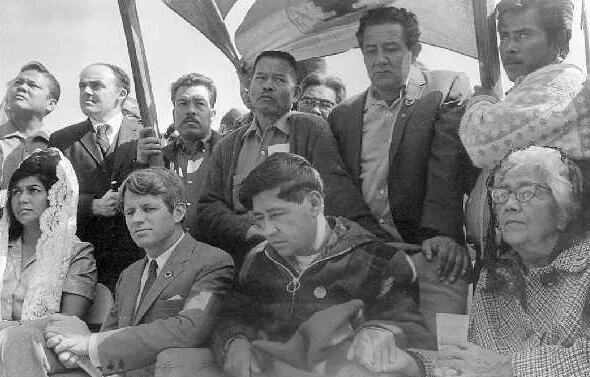As the national Hispanic Heritage Month kicks off on September 15th, I’d like to start off with naming something a mentor told me years ago, which is that we have Latinas/Latinos in California, not Hispanics. My parents immigrated from the Philippines in the 1980s and my siblings and I were born and raised in Riverside, CA, where my friends and classmates were more likely to be Mexican or Chicanx than AAPI. It would be accurate to say that as a second generation Filipino American, I’ve more closely identified with being Brown than Asian since childhood.
As a young person coming up who didn’t have the foresight to major in ethnic studies, little did I know how intense the connection was between my people and my community. Though Latinx and Filipinx folks can share last names and religion because of our shared colonizer (and in one region, even a lingual offshoot), I didn’t know until I worked for fmr.-Assemblymember Rob Bonta and staffed the second annual Larry Itliong Day, that our peoples have a history of allyship against oppressive and inequitable systems. There are many examples of multicultural solidarity that exist through modern American history, though intentionally left out as a way of continuing to divide and minimize political capital amongst people of color and working class folks.
In California, it’s not well known that after the colonization and genocide of indigeneous tribal nations, farmworkers were first largely Chinese, then Japanese, Filipinos, Mexicans and in my lifetime, Southeast Asians and a more diverse Latin American diaspora. Manongs, a term referring to a generation of Filipino agricultural and cannery workers who were barred from bringing their families or owning property, had been the exploited workforce along the Pacific coast for decades in the early 20th century. Mexican farmworkers, led by Cesar Chavez and the still active Dolores Huerta, partnered with Manongs who had held strikes through formal labor organizing infrastructure like the Agricultural Workers Organizing Committee (AWOC), led by Larry Itliong and Philip Vera Cruz.
It was this Brown solidarity that led to the Delano Grape Strike, the California Farmworker Movement and ultimately, the creation of the historic United Farm Workers (UFW) union and somewhat improved working conditions and wages for all Brown farmworkers. Fortunately, state Attorney General Bonta, also passed a law as an assemblymember where the Filipino contribution to the California Farmworker Movement is now recognized in the school curriculum. If you subscribe to “targeted universalism,” then it’s likely you also believe that multicultural solidarity is a precursor to paradigm shifting changes in our systems, policies and therefore society. We do too here at EIC and welcome your partnership in the collective struggle.

